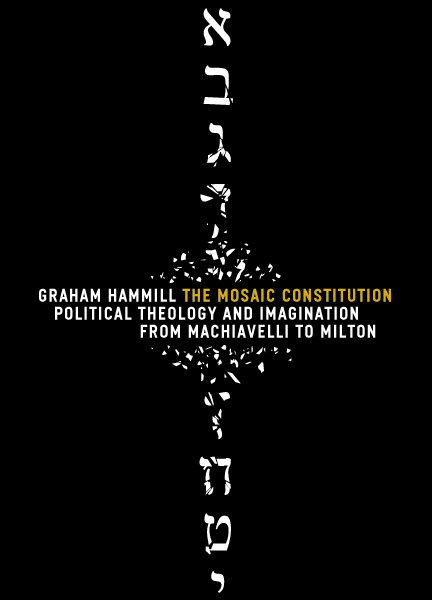
We face a seductive fantasy of independence from a wider, dynamic order of things, with the result that our response to challenges in international relations or ecological crisis have been rather consistently out of touch. But of course this is far from simply an American problem. I suggest that it stems from a disease of the modern subject, a way of looking at the world that treats “its” objects as inert and easily manipulated. In other words, this is a deeply-rooted metaphysical problem, a constitutional failure to account for the capacity of objects in the world to push back…..
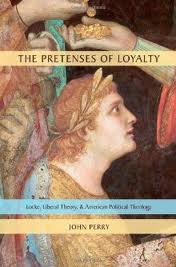
Chapters 4 and 5 of Pretenses of Loyalty constitute the heart of Perry’s argument, offering as they do an intriguing re-interpretation of Locke’s Letter Concerning Toleration and revealing the tensions that will bedevil it in following centuries. Perry’s overall thesis, we will recall, is that modern liberalism suffers from an amnesia, forgetting that there are in fact two prerequisites for a successful policy of religious toleration: harmonization of loyalties and abstract respect. Relying upon the latter alone, modern liberals find themselves flummoxed at the frequency with which border conflicts erupt between religion and politics—having agreed to tolerate all purely religious practices, governments find that many believers insist on expanding the scope of their religion to include civil matters. They ask that believers consent to be led behind a veil of ignorance, willing to treat others and themselves be treated as abstract rights-bearers, but many believers refuse.
A critical issue left unaddressed in Bass’s response to Douthat is the state of power relations within mainline Protestant denominations. In her well-intentioned attempt to counteract the corrosive and controlling ‘narrative of decline’ that plagues mainline Protestant communities, she inadvertently diverts attention away from the reality that the majority of their leadership positions and financial resources are firmly in the control of the Baby Boomer generation….
While the abuses of power and privilege in modern banking may not be as explicit as David’s crime, they are parallel. People in power tend not to consider the cost of their self-interest in communal terms. Most families who are facing foreclosure in New York City today are the victims of banks who regard a homeless child as a reasonable side effect of their profit motive just as David regarded Uriah’s death as a reasonable way to Bathsheba.

Michael Sandel has provided an interesting critique of markets that will likely be of interest to the socially concerned theologian. While this is an area he has long given attention to, his 2012 release What Money Can’t Buy: The Moral Limits of Markets asks the question: “What is wrong with a world where everything is for sale?” Whereas theological appraisals of markets emphasize that “Markets marginalize,” Sandel has proclaimed “Markets leave their mark.” In other words, beyond inequality and fairness, Sandel asserts that markets don’t simply allocate goods, but they “express and promote certain attitudes toward the goods being exchanged”…..
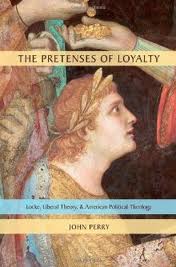
One of the most valuable contributions of Perry’s book is his attempt to illuminate the heretofore rather unexplored territory of Locke’s early work—his 1667 Essay on Toleration and especially his 1660 First Tract on Government. So obsessed are political philosophers and Locke scholars with the magna opera of 1689 that they have tended to pass over these earlier works in silence, but from the standpoint of understanding Locke’s theory of toleration, this is a great mistake, as Perry shows. Why? Well because the early Locke was an opponent of toleration, arguing forcefully against Puritans in the First Tract that the magistrate had the right to impose uniformity in religious practice, and ought to exercise this right. Why the about-face? Only if we take seriously this question, says Perry, will we be able to understand what led him to articulate his full-blown theory of toleration in 1689, and what he sought to accomplish with that theory. Moreover, in so doing, we will find that the argument for toleration is not so much of an about-face from the argument against it as we might have imagined.
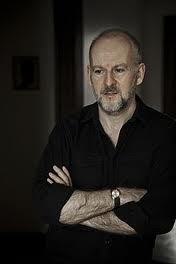
In this interview Simon Critchley discusses his new book, “The Faith of the Faithless: Experiments in Political Theology,” with Dave True of Political Theology. Along the way Critchley touches on an array of topics: his respect for religion, the experimental nature of free thought, what love has to do with a politics of resistance, the genius of the Occupy Movement, nonviolence and its limits, the wisdom of Antonio Gramsci, and the illusions of Marxism. Earlier responses to the book can be accessed….
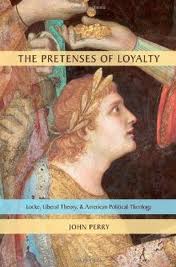
John Perry’s recent book “The Pretenses of Loyalty” offers a clear, penetrating, and persuasive diagnosis of the predicament of contemporary liberal political theory through consideration not only of its present tensions, but more importantly, of its amnesia regarding its historical foundations. I say clear because Perry’s exposition is tightly focused, lucidly written, and structured so as to ensure ease of understanding. By missing no opportunity to repeat his main thesis and the key issues at stake, he walks a fine line, to be sure, between assisting and insulting his readers, but ultimately avoids the latter in my judgment. The diagnosis is penetrating because it does not rest content with surveying the ongoing contemporary conflicts between politics and religion and the critiques marshaled by communitarian theorists such as Michael Sandel and Stanley Fish—though he does this admirably in the first two chapters—but digs right down to the historical roots of liberal theory, the amnesia of which, he argues, is largely responsible for its present predicament….
‘…as the food is set…a solid thumb and forefinger tears thunderous grey bread.’
For those of us who are inheritors of the Judeo-Christian tradition the word ‘bread’ crackles with connotation. Out of the simple truth that bread is one of the traditional staples of human living, endless symbolism flows: Bread can signify our basic human need for nourishment, it can act as a sign of the work of human hands and so on. Bread can be torn, scattered and gathered and, even in Rowan Williams’ poem Emmaus (quoted above), made to thunder. If some might treat ‘bread’ as a tired, overworked metaphor it also takes us to the heart of the Christian faith. The bread of the Eucharistic feast is no mere sign, it is sacrament….
There are few terms that evoke greater distrust among many wise and sceptical people on both sides of the Atlantic right now than ‘faith-based politics’. A large part of that distrust comes from an awareness of the potency and even toxicity that can arise from religious or ideological emotion and commitment – and not just among those whose beliefs (religious or otherwise) are other than, or opposite to, our own….
The author of Ephesians is addressing the conflict between Jew and Gentile Christians (“the cut/circumcised” and “the uncut/uncircumcised”). The politics of this text could be boiled down to the first century conflict between these two groups. It’s a definition so basic and so simple that it belongs in a Politics 101 course. Where it gets interesting, however, is not how one defines the conflict, but how the author of Ephesians deals with it…..
